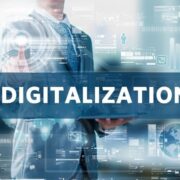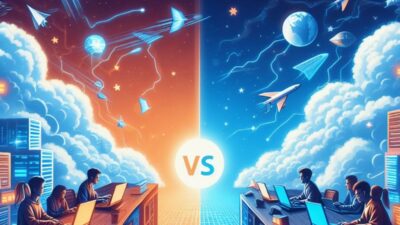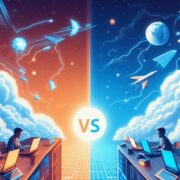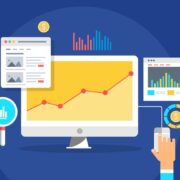Data science has recently become one of the hottest areas. It’s growing at an amazing pace, as is the demand for data scientists. The role of a data scientist is extremely dynamic. No two days are the same for them, and that is what makes it so unique and exciting. Since this is a new field, there is both excitement and confusion. Let’s erase these data scientist myths in the following order:
- Who is a data scientist?
- Myths of the data scientists versus realities
While there are different definitions of data scientists, they are basically professionals who practice the art of data science. Data scientists crack complex data problems with their expertise in scientific disciplines. It is a position of specialists.
They specialize in different types of skills such as speech, text analysis (NLP), image and video processing, medicine and materials simulation, etc. Each of these specialist roles is very limited in number, and therefore the value of such a specialist is immense. Anything that quickly gains momentum becomes what everyone is talking about. And the more people talk about something, the more misunderstandings and myths pile up. So let’s debunk some data scientist myths.
Myths of the data scientists versus reality
You must have a PhD be. holder
A PhD is undoubtedly a huge achievement. It takes a lot of hard work and dedication to research. But is it necessary to become a data scientist? It depends on the type of job you want to go for.
When you choose Applied Data Science Role, which is primarily based on working with existing algorithms and understanding how they work, most people fit into this category. Most of the vacancies and job descriptions you see apply to these roles only. You do NOT need a PhD for this role. Degree.
However, if you want to take on a research role, you may need a PhD. Degree. If you enjoy working on algorithms or writing a thesis, then PhD is the way to go.
Data Scientist will soon be replaced by AI.
If you believe several data scientists can do anything related to an AI / ML project. It’s not a practical solution because when you focus on an AI project, there are many jobs associated with it. AI is a very complex field with many different roles such as:
- Data engineer
- statistician
- Domain expert
- IoT specialist
- Project manager
More data means greater accuracy
There is a huge misconception, and one of the myths of big data scientists that “the more data you have, the more the accuracy of the model will be”. More data does not result in higher accuracy. On the other hand, small but well-maintained data can be of better quality and accuracy. Most importantly, understanding the data and its ease of use. The quality is there at the most.
Deep learning is only intended for large organizations.
One of the most common myths is that you need a significant amount of hardware to perform deep learning tasks. Well, that’s not entirely wrong. A deep learning model always works more efficiently when it has a powerful hardware setup to run on. However, you can run it on your local system or Google Colab (GPU + CPU). Training the model on your machine may take longer than expected.
Data collection is easy.
Data is being generated at an astounding rate of around 2.5 trillion bytes per day, and gathering the right data in the right format is still a tough task. You need to create a suitable pipeline for your project. There are many sources for obtaining data. The cost and quality are high. Maintaining the data integrity and the pipeline is an essential part that should not be messed with.
Data scientists only work with tools / It’s all about the tools.
People usually learn a tool and think they can get a job in data science. Learning a tool is important to being a data scientist, but as I mentioned earlier, your role is much more diverse. Data scientists shouldn’t just use one tool to infer solutions. Instead, they need to master essential skills. Yes, mastering a tool creates hope for an easy entry into data science, but companies hiring data scientists will not consider tool know-how alone. Instead, they are looking for a professional who has acquired a combination of technical and business skills.
You need a coding/computer science background.
Most data scientists are good at coding and may have some experience in computer science, math, or statistics. This doesn’t mean that people from other backgrounds can’t be data scientists. One thing to keep in mind is that these people have an advantage with this background, but that’s only initially. You have to keep the dedication and hard work, and soon it will be easy for you.
Data science competitions and real-life projects are the same.
These competitions are a great start to data science’s long journey. You can work with large amounts of data and algorithms. Everything is fine, but viewing it as a project and including it on your resume is certainly not a good idea as these competitions don’t come close to a real project. You can’t clean up the messy data, build pipelines, or check the time limit. All that matters is the model accuracy.
Everything revolves around the predictive model building.
People usually think that data scientists predict future outcomes. Predictive modelling is an essential aspect of data science, but it cannot help you any further. In each project are multiple steps in the entire cycle contain, starting from the data acquisition, the Wrangling, the analysis of data, the training of the algorithm, creating a model, testing the model to deployment. You need to know the entire end-to-end process. Let’s look at the final myths of data scientists.
The AI will continue to evolve after it is built.
It is a common misconception that AI continues to grow, evolve, and generalize by itself. Well, sci-fi films have always conveyed the same message. Well, that’s not true at all; in fact, we are way back. The best we can do is train models that will train themselves as new data is fed into them. They cannot adapt to changes in the environment or a new type of data.























Comments